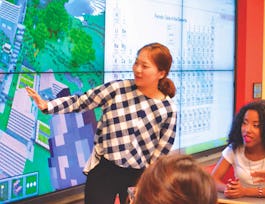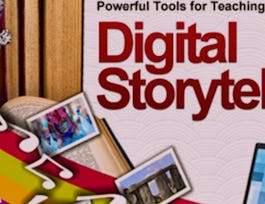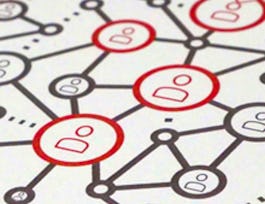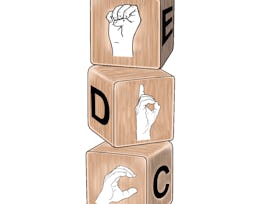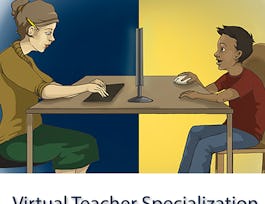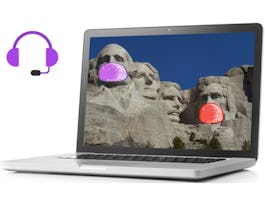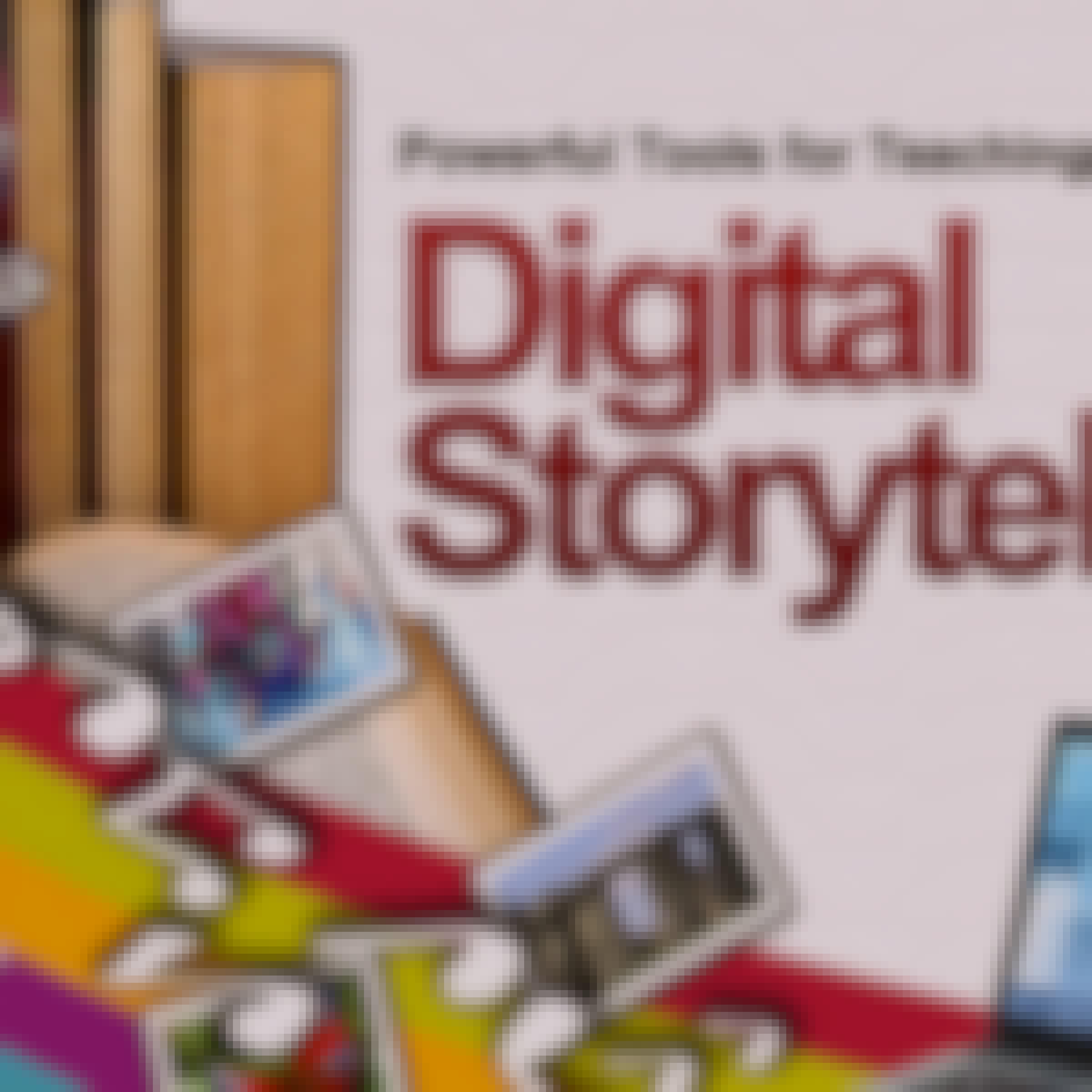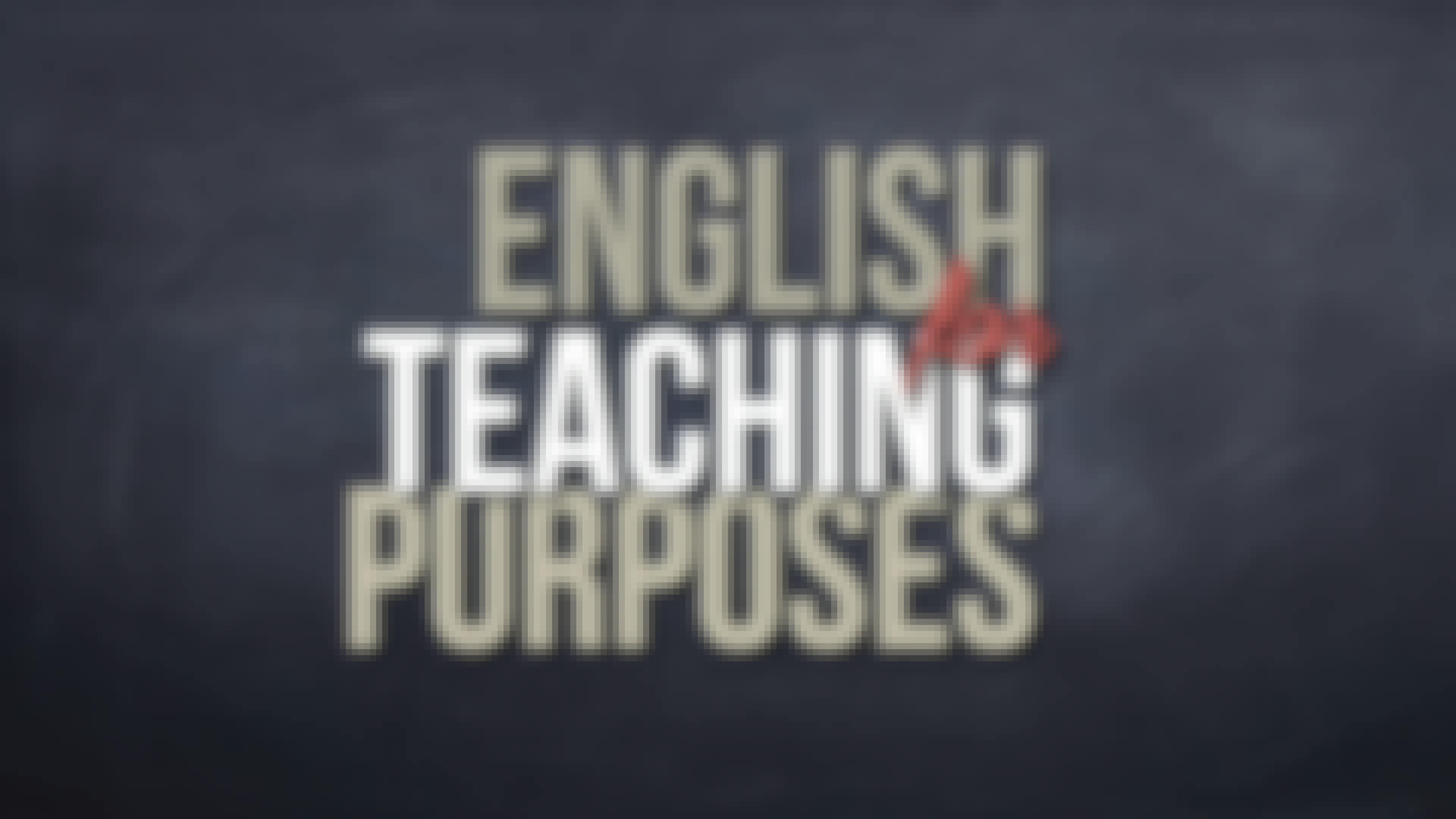- Explore
- Social Sciences
- Education
Education
Earn Your Degree
Most Popular Courses
Teaching Strategies and Skills for Learner Success
Top Rated Courses
Develop Your eLearning Toolkit
Educator Development
Most Popular Certificates
Frequently Asked Questions about Education
For many, education is synonymous with schooling, and with preparation for a subsequent career. From this perspective, education may seem like little more than a series of boxes to check: show up at class, learn the material, do the homework, pass the test, and, finally, get the diploma that gets you the job. This kind of rote, almost transactional experience of learning can be all too common, and it represents a misunderstanding of what it means to be an educator - or an educated person.
Instead, education can and should be an ongoing process of learning and discovery that extends beyond the hours, months, and years you spend in school (whether on-campus or online). Great teachers and learning institutions help you develop the mindset of being open to the lessons of the world, not just the lessons of the classroom, and to believe in your own ability to continually acquire and use new knowledge.
Thus, the job of an educator isn’t just about teaching; it’s about fostering this positive attitude towards education, and cultivating hopeful environments and relationships for learning that can last a lifetime.
In our fast-changing world, this ability to seize new learning opportunities with eagerness and curiosity is more important than ever for your career as well as your personal life. In just the past decade, the rapid advance of technology and the information revolution have created entirely new disciplines - and highly sought-after career paths - in areas like data science and machine learning. Similarly, we have seen a flourishing of research and writing in areas of self-improvement, happiness, and mindfulness, giving us new tools to enhance our well-being - provided we are open to learning them.
The most obvious educational professionals we encounter in our lives are teachers. From your first kindergarten teachers that taught you how to share, to the college professors that helped you learn to interpret modern art, to expert online instructors that help you learn to use data science at your job, teaching can be an incredibly meaningful career path no matter what subject and level of student you want to work with. It’s also a very popular career: according to the Bureau of Labor Statistics, there are over 3 million kindergarten, elementary school, middle school, and high school teachers in America.
Schools also employ educators who support students in ways that go beyond the classroom. Guidance counselors and career counselors help advise students on their path through the educational system, including help in setting career goals and selecting the courses and extracurricular activities that will help achieve them. School psychologists and other types of counselors may also work at schools to serve as an invaluable resource for students to help manage emotional issues or problems in their family life.
Teachers and counselors that work directly with students aren’t the only type of educators, of course. Cultivating the right learning environment at schools requires lots of “behind the scenes” educators, such as principals, superintendents, and school district administrators. These administrative professionals are responsible for day-to-day operations, setting policies, and hiring staff at schools, providing essential support structures that enable teachers to do their jobs. There are also instructional designers and curriculum designers that use their pedagogical expertise to develop the materials that teachers use in the classroom.
Coursera is committed to expanding access to high-quality learning, and that includes making great courses and Specializations in education available from top-ranked institutions like the University of Pennsylvania, the University of Colorado Boulder, Arizona State University, and Universidad Nacional Autónoma de México. You can learn about broad subjects such as higher education and teacher training, or more specialized topics in areas like educational technology and instructional design.
Regardless of whether you’re looking to develop foundations for a new career in teaching or are an educational professional trying to deepen your expertise, online courses through Coursera offer you the opportunity to learn the same material as on-campus students at a significantly lower cost. The ability to do your coursework on a flexible schedule also makes it possible to learn while continuing to work at your existing job or while raising a family.
Education courses on Coursera cover a wide array of topics crucial for educators and those interested in learning sciences:
- Teaching strategies that enhance student engagement and learning outcomes.
- Understanding of different pedagogical approaches and their applications in diverse educational settings.
- Skills for curriculum development and instructional design.
- Techniques for effective classroom management and student assessment.
- Insights into educational technology and how to integrate tools to facilitate learning.
- Approaches to inclusive education that accommodate students from various backgrounds and with different needs.
- Knowledge of educational policy, leadership, and administration.
Education courses on Coursera are designed for learners of all backgrounds:
- Introductory courses are suitable for newcomers to the field of education, providing essential concepts and basic teaching skills.
- Intermediate courses cater to those with some teaching experience or education, aiming to expand their knowledge and skills.
- Advanced courses target educational professionals and leaders who seek to deepen their expertise in specialized areas or pursue educational innovation.
Coursera offers several pathways for obtaining credentials in education:
- Professional certificates that can help you demonstrate your educational skills and knowledge.
- Specialized course certificates that focus on specific educational techniques or challenges.
- Degree programs and professional qualifications that can prepare you for leadership roles or specialized educational careers.
These credentials are designed to support your professional development and help validate your knowledge in the field of education.
Pursuing education courses on Coursera can open up various career paths within and related to the field of education:
- Teacher: Empower students with knowledge in classrooms ranging from early childhood to higher education.
- Educational Consultant: Advise educational institutions on curriculum development, teacher training, and student services.
- Instructional Coordinator: Develop instructional material, coordinate educational content, and incorporate current technology in specialized fields.
- School Administrator: Manage operations in educational institutions, including supervising staff and implementing policies.
- Corporate Trainer: Design and deliver training programs within businesses to enhance skills and knowledge of employees.
Online Education courses offer a convenient and flexible way to enhance your existing knowledge or learn new Education skills. With a wide range of Education classes, you can conveniently learn at your own pace to advance your Education career.
When looking to enhance your workforce's skills in Education, it's crucial to select a course that aligns with their current abilities and learning objectives. Our Skills Dashboard is an invaluable tool for identifying skill gaps and choosing the most appropriate course for effective upskilling. For a comprehensive understanding of how our courses can benefit your employees, explore the enterprise solutions we offer. Discover more about our tailored programs at Coursera for Business here.






